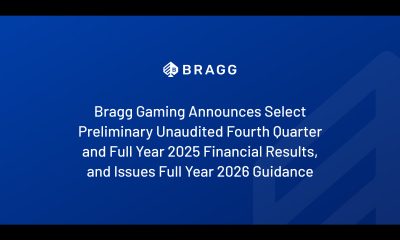Baltics
The Lithuanian Gaming Control Authority (LPT) has completed its inspection: Olympic Casino has been fined almost 8.4 million euros
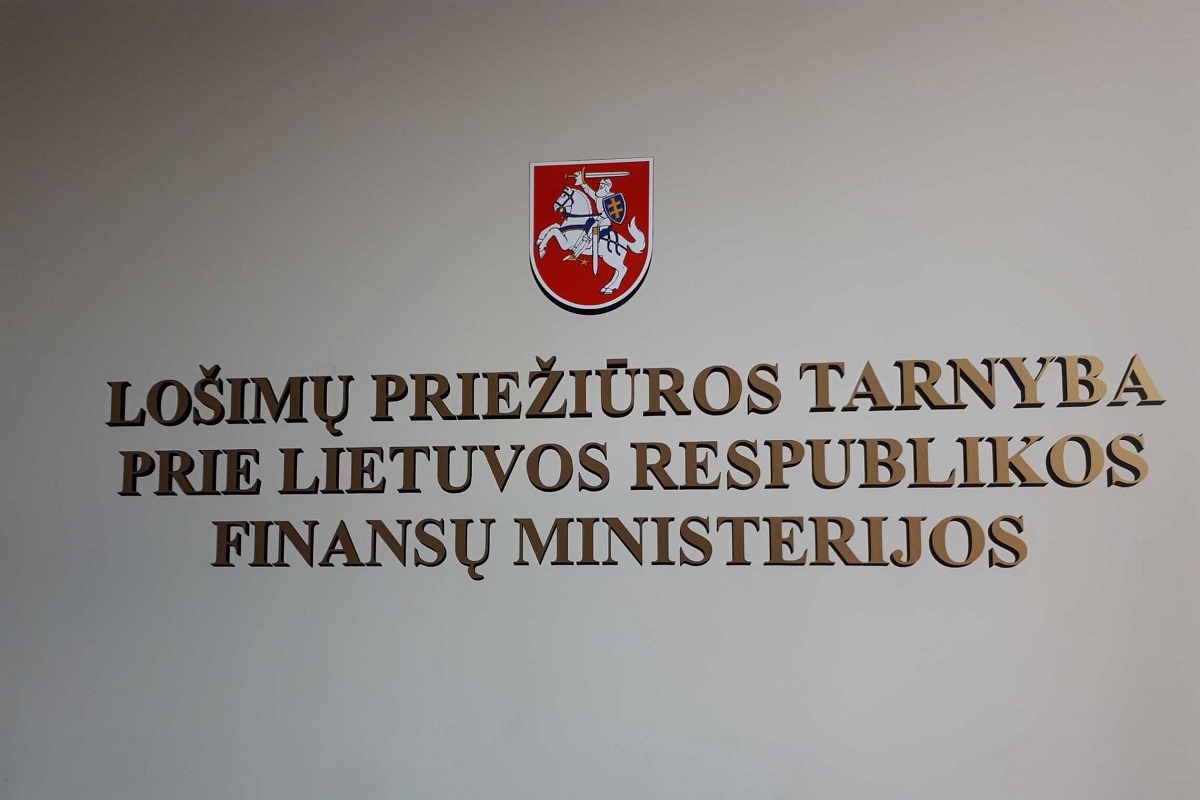
The company Olympic Casino Group Baltija (OCGB) did not take sufficient steps to identify the origin of Šarūnas Stepukonis’ losing funds, and the monitoring of his financial transactions was only formal and ineffective. Such violations were identified by the Gaming Supervisory Authority, which conducted an inspection of OCGB’s activities in Lithuania. The company was fined almost 8.4 million euros.
The Gaming Supervisory Authority (LPT) investigated the actions taken by OCGB in response to Š. Stepukonis’ transactions on the company’s gaming website from December 2016 to the end of June 2021. The law obliges gaming operators to ensure that customer funds are not obtained from criminal activities or through participation in such activities. It is also mandatory to verify the origin of the funds. LPT found that the measures applied by OCGB were poor and insufficient, and the monitoring of Š. Stepukonis’ transactions was formal.
Gambling organizers must report suspicious transactions to the FNTT. Š. Stepukonis’ transactions had obvious signs that should have raised suspicions for the gambling organizer. However, the FNTT was not informed about this.
During the inspection, evidence was also collected that Š. Stepukonis’ gambling was irresponsible. The gambling company should have noticed this, especially since the client was assigned a personal manager who saw all of his transactions.
“Instead of finding out whether Š. Stepukonis had a gambling problem or informing the supervisory authority, Olympic Casino encouraged him to gamble even more. An individual incentive package was prepared for him. A total of 1.3 million euros was allocated for this. This “bonus” could only be spent on gambling. Other incentives were also allocated,” – comments on the results of the inspection by LPT Director Virginijus Daukšys.
Since mid-2021, gambling companies in Lithuania have no longer been allowed to offer incentives to their customers that they would later lose. Just before this tightening came into effect, Š. Stepukonis’ virtual gambling was moved from Lithuania to Estonia, where it was still allowed to encourage gamblers.
In this way, it was possible not only to maintain incentives for gambling, but also to avoid supervision by the LPT. If an ordinary gambler from Lithuania tried to go and register on the Estonian Olympic Casino website, he would be redirected to the Lithuanian website. However, in the case of Š. Stepukonis, the redirection was not carried out. These circumstances are part of the pre-trial investigation.
During the inspection, a total of five violations of the provisions of the Law on the Prevention of Money Laundering and Financing of Terrorism and the Law on Gambling were identified.
The law allows for a fine of up to twice the amount of damage caused. The damage was determined to be 6.4 million euros – the amount Š. Stepukonis lost at the Olympic Casino in Lithuania. When calculating the fine, an aggravating circumstance was taken into account – the company did not cooperate during the inspection.
According to V. Daukšys, after this story came to light, steps were taken to prevent similar cases from recurring. The most important change is the law, proposed by the LPT, which obliges gambling companies to take action upon noticing irresponsible gambling and to provide information about it to the LPT.
“Until now, there was no such obligation. Therefore, the LPT did not have information that would allow it to take preventive actions in advance,” says V. Daukšys.
The new Gambling Law will come into force in November this year. Its aim is to reduce the accessibility, attractiveness and potential harm to personal health of gambling.
LPT also reviewed its procedures, adjusted internal procedures, allowing for more frequent scheduled inspections of the activities of gambling companies. In addition, the Ministry of Finance conducted an audit of LPT’s activities. No significant operational deficiencies were identified during the audit. LPT took into account the audit recommendations and allocated more human resources to money laundering prevention functions.
Source: Gambling Supervisory Authority under the Ministry of Finance of the Republic of Lithuania
The post The Lithuanian Gaming Control Authority (LPT) has completed its inspection: Olympic Casino has been fined almost 8.4 million euros appeared first on European Gaming Industry News.
Baltics
HIPTHER Baltics Launches in Vilnius with Agenda Revealing Lithuania’s 2026 Regulatory Reset
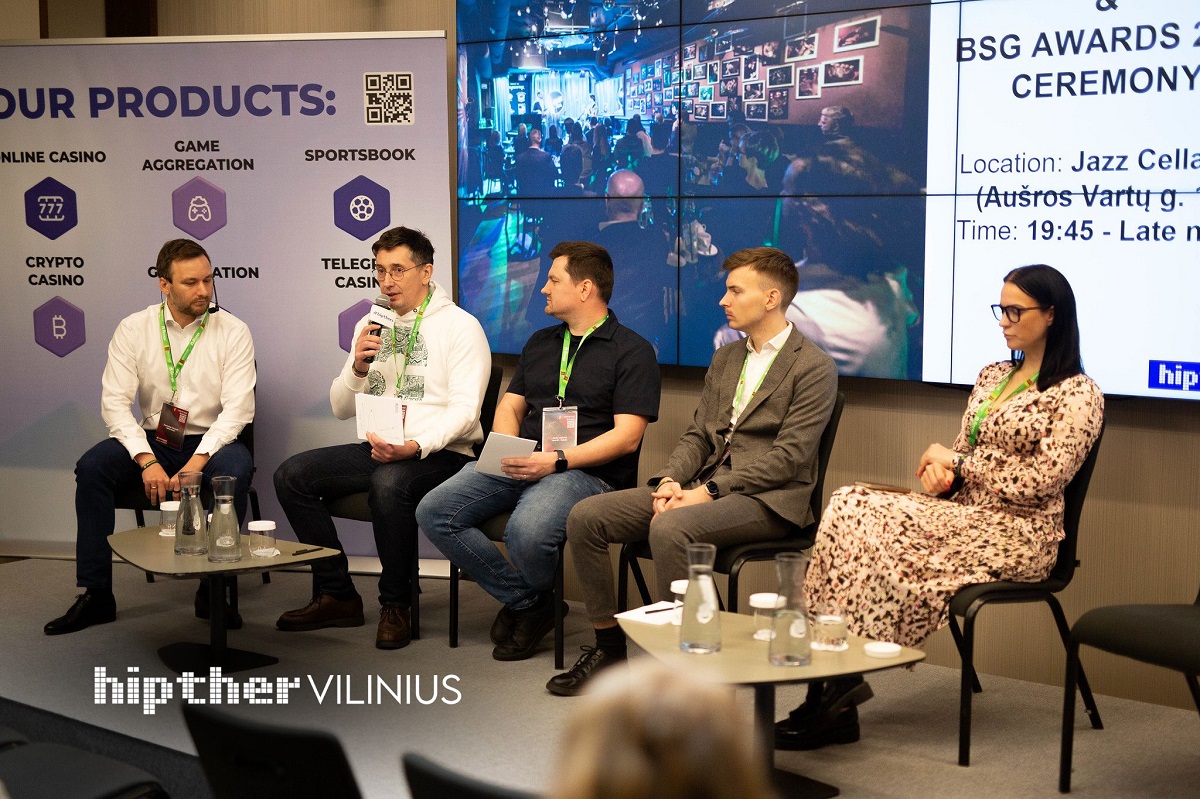
A new Baltic-focused conference era begins on 21 April 2026, uniting iGaming, fintech, compliance, and innovation leaders in Lithuania’s digital-first capital
HIPTHER officially announces the agenda for HIPTHER Baltics: Vilnius 2026, the inaugural event of its newly launched Baltic conference series, taking place 21 April 2026 at the Hilton Garden Inn Vilnius City Centre.
Marking the evolution of the landmark MARE BALTICUM Gaming & TECH Summit, the new HIPTHER Baltics format introduces targeted, country-focused gatherings designed to deliver deeper regulatory insight, stronger regional dialogue, and practical strategic value for decision-makers operating across gaming, fintech, and digital innovation.
At the heart of the Vilnius edition lies a defining theme: Lithuania’s Great Regulatory Reset — a decisive transition toward stricter supervision, strengthened compliance frameworks, and sustainable, quality-driven growth across financial services and iGaming.
Lithuania 2026: From Easy-Access Hub to Compliance-Driven Ecosystem
As Lithuania sharpens oversight across banking, fintech, blockchain, and gaming, the conference agenda explores four structural shifts shaping the market:
- Banking: Cyber-resilience stress testing, the rise of specialised institutions, and a pivot toward sustainable profitability
- Fintech: Account-to-account dominance, international B2B expansion, and the emergence of agentic AI beyond chatbot automation
- Blockchain: Post-MiCA enforcement, strengthened AML leadership requirements, and institutional tokenisation of real-world assets
- iGaming: Advertising restrictions, ISP blocking acceleration, and intensified identity and source-of-funds compliance
Together, these forces signal a new operational reality for regulated digital industries in the Baltics.
Agenda Highlights Across Two Strategic Stages
Stage 1 — Strategy, Compliance & Banking
Key discussions will include:
- Regulators’ Panel: Bank of Lithuania and FNTT on MiCA transition and new iGaming ISP-blocking protocols
- Banking Transformation: How credit unions and specialised banks challenge Nordic incumbents
- Post-MiCA Survival: Maintaining VASP licensing under 2026 regulatory structures
- iGaming Advertising Ban: Operator strategies in a zero-marketing environment
- AML 2.0: Implementing enhanced source-of-wealth requirements for high-stakes players
- Cross-Industry Debate: Can tokenisation solve transparency challenges between blockchain and iGaming?
Stage 2 — Innovation, Blockchain & iGaming Tech
- Agentic AI in Fintech: From conversational tools to autonomous financial advisors
- Tokenising the Real World: Real-estate and debt instruments on-chain in the Baltics
- Next-Generation Payments: A2A integration across gaming and retail ecosystems
- Digital Euro & CBDCs: Technical readiness for the European Central Bank’s 2026 roadmap
A Boutique Summit Built for Decision-Makers
HIPTHER Baltics: Vilnius 2026 will gather 100+ senior attendees, 30+ expert speakers, and 15+ key industry topics in a one-day, high-impact format combining:
- High-level regulatory and industry panels
- Curated networking among operators, fintech leaders, regulators, legal experts, and investors
- A premium, centrally located boutique conference environment
The event is designed for iGaming operators, fintech and payment providers, compliance professionals, regulators, affiliates, startups, and regional investors seeking actionable intelligence in a rapidly tightening regulatory landscape.
From MARE BALTICUM Legacy to HIPTHER Baltics Future
Reflecting on the transition, Zoltán Tűndik, Co-Founder & Head of Business at HIPTHER, stated:
“Lithuania is entering one of the most defining regulatory transitions in its modern digital economy. With HIPTHER Baltics in Vilnius, we are creating a focused platform where regulators, financial institutions, fintech innovators, and iGaming leaders can engage in honest, high-level dialogue about what sustainable growth truly means in 2026 and beyond.”
With HIPTHER Baltics launching in Vilnius, the Baltic region enters a new phase of dialogue — closer to local markets, deeper in expertise, and stronger in cross-industry collaboration.
The journey begins in Vilnius on 21 April 2026.
The post HIPTHER Baltics Launches in Vilnius with Agenda Revealing Lithuania’s 2026 Regulatory Reset appeared first on Eastern European Gaming | Global iGaming & Tech Intelligence Hub.
Amusnet
Amusnet Enters into Strategic Partnership with Twinsbet Arena in Vilnius, Lithuania
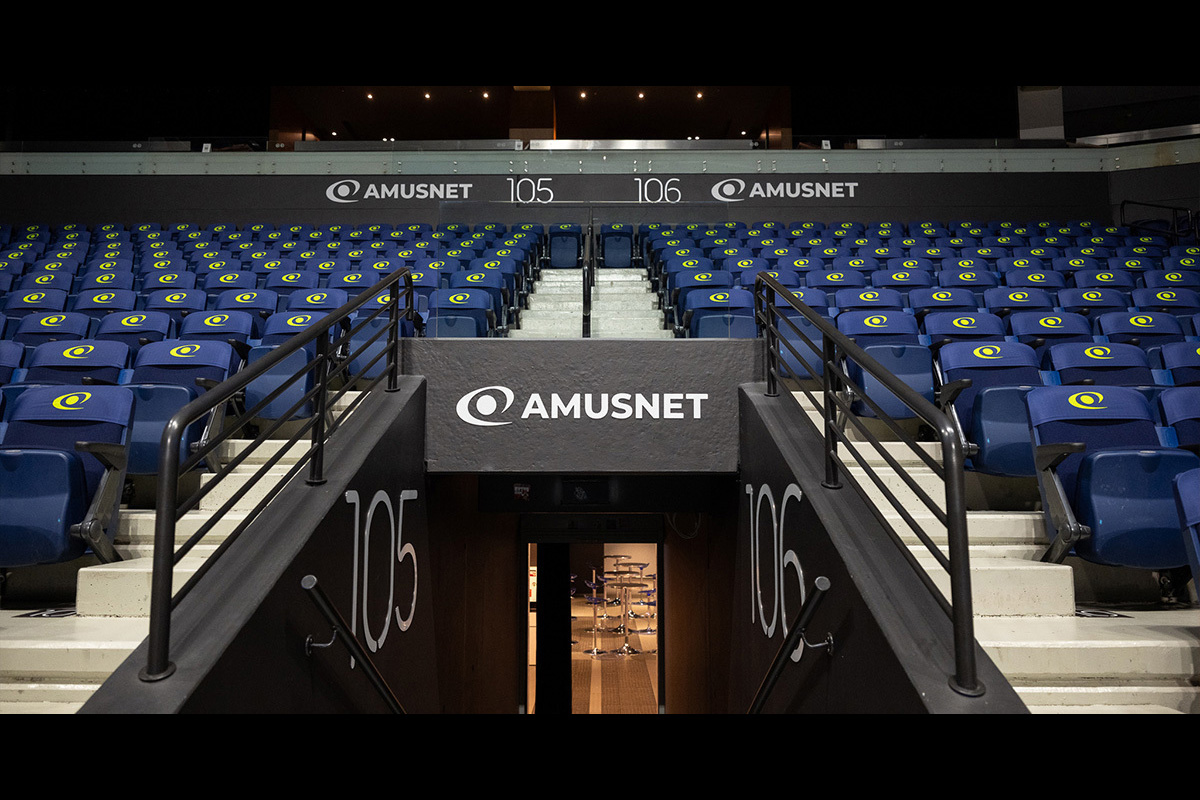
Amusnet has expanded its international brand presence through a new strategic partnership with the landmark Twinsbet Arena in Vilnius, Lithuania.
As Lithuania’s largest and most established events venue, Twinsbet Arena hosts approximately 100 major concerts, sporting events and international productions annually. The partnership positions Amusnet within one of the country’s most prominent entertainment venues, reinforcing the company’s commitment to high-visibility, premium collaborations.
The agreement includes brand integration across the Arena environment and with one of the venue’s exclusive hospitality spaces, now operating as the Amusnet Lounge. The premium area offers guests dedicated access, refined hospitality services and exceptional views during live events, further associating the Amusnet brand with elevated audience experiences.
“The former Premium Lounge club will now operate as the ‘Amusnet Lounge’. Guests attending any event who purchase tickets in this club sector will enjoy additional benefits, including a dedicated entrance, complimentary cloakroom service, access to a unique hospitality space, premium snacks and beverages, and some of the best sightlines in the arena,” said Aneta Lauciuvienė, Head of Sales at Twinsbet Arena.
Ivo Georgiev, CEO of Amusnet, said: “Our partnership with Twinsbet Arena reflects Amusnet’s strategic vision to align with iconic venues and institutions that shape their national entertainment landscapes. This collaboration strengthens our brand presence in Lithuania and positions Amusnet at the heart of a venue that brings together global performers, premier sporting events, and diverse audiences. We view this as a long-term partnership built on shared ambition and sustained value creation.”
Through this strategic collaboration, Amusnet further strengthens its international brand positioning and deepens its presence in one of the Baltic region’s most dynamic markets.
The post Amusnet Enters into Strategic Partnership with Twinsbet Arena in Vilnius, Lithuania appeared first on Eastern European Gaming | Global iGaming & Tech Intelligence Hub.
Baltic & Nordics Gaming Awards 2026
Nominations Now Open for the HIPTHER Baltic & Nordics Gaming Awards 2026
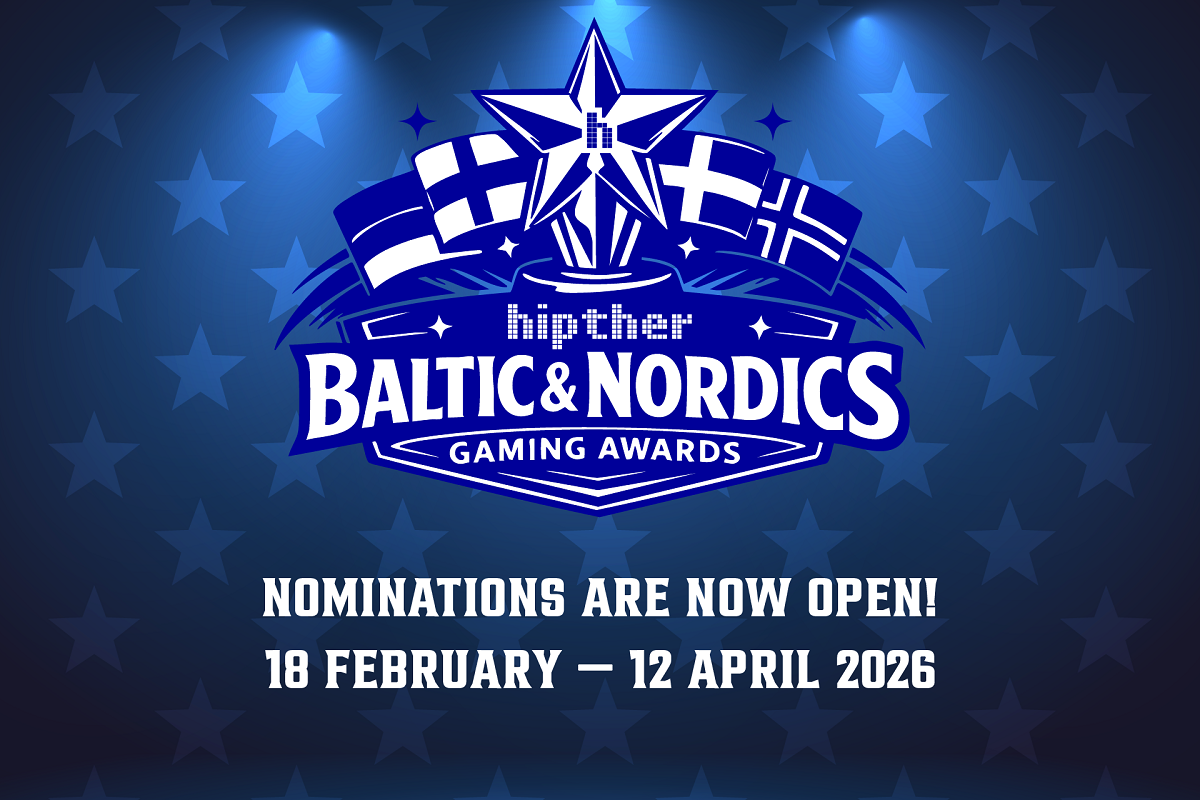
Recognising Excellence Across the Baltics & Nordics
The spotlight is officially on!
HIPTHER has opened nominations for the Baltic & Nordics Gaming Awards 2026, the region’s defining celebration of innovation, leadership, and operational excellence across the gaming and technology ecosystem.
From pioneering operators and cutting-edge suppliers to infrastructure leaders and visionary individuals, the awards honour the companies and people shaping the future of regulated gaming across the Baltic and Nordic regions.
And this year, the journey culminates on a single stage.
Winners will be revealed on 2 June 2026 in Tallinn, during the prestigious Awards Ceremony & Closing Party of HIPTHER Baltic & Nordics: Tallinn — the grand finale of the HIPTHER Baltics 2026 conference series.
One region. One stage. One official awards night.
Key Dates to Remember
- Nomination period: 18 February – 12 April 2026
- Online voting session: 21 – 30 April 2026
- Shortlist announcement: 5 May 2026
- Final decision: 29 May 2026 – Secret Jury Vote
- Winners announced: 2 June 2026 – Tallinn Awards Ceremony
Part of the HIPTHER Baltics 2026 Journey
The Awards form the grand finale of HIPTHER BALTICS 2026 – Three Capitals, One Vision, a high-level regional conference series exploring regulation, fintech, compliance, and innovation across three Baltic capitals:
- Vilnius – 21 April 2026
iGaming Regulation & Fintech Integration - Riga – 11 May 2026
Cross-Border Compliance & Player Protection - Tallinn – 2 June 2026
Digital Governance & Startup Innovation
+ Baltic & Nordics Gaming Awards Ceremony
Together, the series delivers HIPTHER’s signature blend of policy insight, technological vision, and meaningful networking — culminating in the region’s most anticipated awards night.
Award Categories Across Six Industry Pillars
The 2026 edition features a comprehensive structure recognising excellence across:
- Baltics – Operators
- Nordics – Operators
- Suppliers – Casino & Content
- Suppliers – Sports & Odds
- Connected & Infrastructure
- Individual Industry Awards
This multi-layered approach ensures recognition not only for market leaders, but also for rising innovators, technology disruptors, and influential personalities driving the sector forward.
Why These Awards Matter
The Baltic and Nordic regions continue to stand at the forefront of regulation, digital governance, fintech integration, and responsible innovation in global gaming.
The HIPTHER Baltic & Nordics Gaming Awards serve as:
- A benchmark of trust and excellence
- A platform for regional and international visibility
- A celebration of the people and technologies shaping tomorrow’s industry
In short — recognition here resonates far beyond the stage.
Submit Your Nomination
Industry stakeholders, partners, and community members are invited to nominate the companies and leaders defining excellence in 2026.
Nominations are open until 12 April 2026.
 Submit your nominations here.
Submit your nominations here.
Join the journey toward Tallinn — and be part of the night where the region’s finest step into the spotlight!
The post Nominations Now Open for the HIPTHER Baltic & Nordics Gaming Awards 2026 appeared first on Eastern European Gaming | Global iGaming & Tech Intelligence Hub.
-

 Adjusted EBITDA7 days ago
Adjusted EBITDA7 days agoBragg Gaming Announces Select Preliminary Unaudited Fourth Quarter and Full Year 2025 Financial Results, and Issues Full Year 2026 Guidance
-

 Bagley-Keene Act7 days ago
Bagley-Keene Act7 days agoCalifornia Gambling Control Commission Issues Critical Guidance on Stakeholder Communications and Ex Parte Rules
-

 iGaming6 days ago
iGaming6 days agoPRAGMATIC PLAY UNEARTHS PROGRESSIVE MULTIPLIERS IN ROLLING IN TREASURES
-

 Comatel5 days ago
Comatel5 days agoCOMATEL CELEBRARÁ UNA FIESTA PARA CIENTOS DE OPERADORES TRAS FINALIZAR EL PRIMER DÍA DE LA FERIA ESPAÑOLA, INTERAZAR
-

 Betty Casino7 days ago
Betty Casino7 days agoBetty Casino Announces Partnerships with Toronto FC and Toronto Argonauts
-

 Africa7 days ago
Africa7 days agoGroove Targets Africa’s iGaming Boom at SiGMA Cape Town 2026
-

 Booming Games6 days ago
Booming Games6 days agoBooming Games Introduces Instastrike, the Latest Diamond Hits Trio
-

 Australia7 days ago
Australia7 days agoTabcorp Pays $158,400 Penalty for Taking Illegal In-Play Sports Bets
















